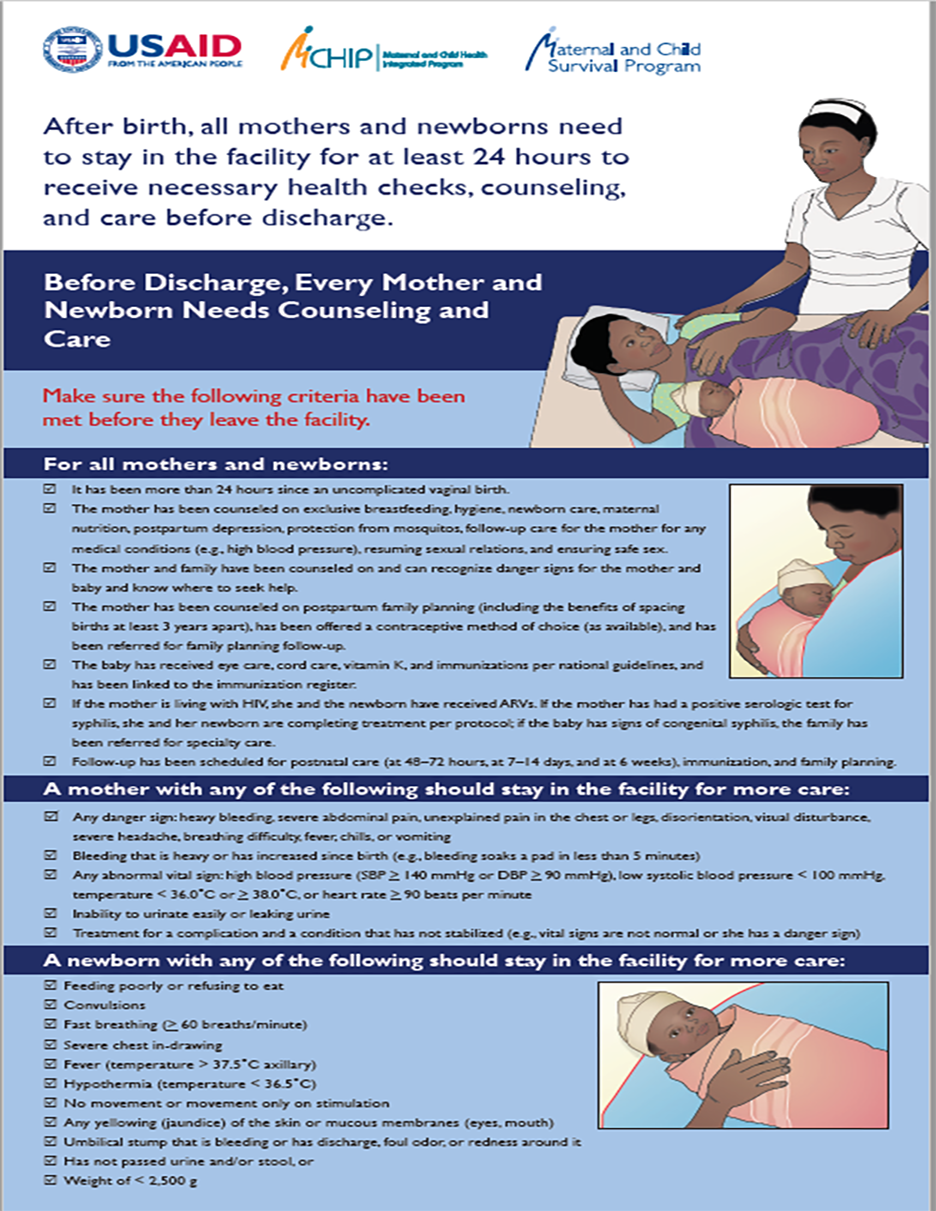
Routine Postnatal Care of Women and Their Babies: A Comprehensive Guide
Introduction
The postnatal period, also known as the postpartum period, is a crucial time for both women and their newborns. This period encompasses the first six weeks after childbirth, during which the mother’s body undergoes significant physical and hormonal changes while the baby adapts to life outside the womb. Routine postnatal care plays a vital role in ensuring the well-being of both the mother and the baby during this transformative time.
Postnatal Care for the Mother
Physical Recovery
- Episiotomy or Cesarean Section Care: If the mother underwent an episiotomy (a surgical incision made during childbirth) or a cesarean section, proper wound care is essential to prevent infection and promote healing.
- Perineal Care: The perineum, the area between the vagina and the anus, may be sore and swollen after childbirth. Sitz baths, warm compresses, and over-the-counter pain relievers can help alleviate discomfort.
- Uterine Contractions: After childbirth, the uterus contracts to return to its pre-pregnancy size. These contractions, known as afterpains, can be uncomfortable and may be more intense with subsequent pregnancies.
- Vaginal Discharge: Lochia, a vaginal discharge consisting of blood, mucus, and tissue, is normal after childbirth. It typically lasts for several weeks and gradually decreases in amount and color.
- Breast Care: Breastfeeding mothers may experience engorgement, tenderness, and leaking. Proper latching techniques, warm compresses, and over-the-counter pain relievers can help alleviate discomfort.
Emotional Recovery
- Postpartum Blues: Most women experience mild mood swings and emotional lability in the first few days after childbirth. These symptoms usually resolve within a few weeks.
- Postpartum Depression: A more severe form of depression can occur after childbirth. Symptoms include persistent sadness, anxiety, irritability, and difficulty bonding with the baby.
- Post-Traumatic Stress Disorder (PTSD): Some women may experience PTSD after a traumatic childbirth experience. Symptoms include flashbacks, nightmares, and avoidance of reminders of the event.
Health Monitoring
- Blood Pressure: Blood pressure is typically monitored regularly after childbirth to ensure it is within a healthy range.
- Temperature: Fever is a sign of infection and should be reported to the healthcare provider immediately.
- Urinary Tract Infection (UTI): UTIs are common after childbirth due to the use of a catheter during labor. Symptoms include frequent urination, burning, and cloudy or foul-smelling urine.
- Hemorrhoids: Hemorrhoids, swollen veins in the rectum, can occur after childbirth due to straining during labor. Sitz baths, over-the-counter hemorrhoid creams, and stool softeners can help alleviate discomfort.
Follow-Up Appointments
- 6-Week Postpartum Visit: This visit is typically scheduled six weeks after childbirth and is essential for assessing the mother’s physical and emotional recovery. The healthcare provider will examine the mother, discuss any concerns, and provide guidance on contraception and future pregnancies.
- Annual Well-Woman Exam: After the 6-week postpartum visit, women should resume their annual well-woman exams to monitor their overall health and well-being.
Postnatal Care for the Baby
Physical Care
- Weight and Growth Monitoring: The baby’s weight and growth are typically monitored regularly to ensure they are developing properly.
- Jaundice: Jaundice, a yellowing of the skin and whites of the eyes, is common in newborns and usually resolves within a few weeks.
- Cord Care: The umbilical cord stump typically falls off within 1-2 weeks after birth. Proper cord care is essential to prevent infection.
- Bathing: Newborns do not need to be bathed daily. Sponge baths or gentle wipes can be used to clean the baby’s skin.
- Diapering: Newborns need to be changed frequently to prevent diaper rash.
Feeding
- Breastfeeding: Breastfeeding is the recommended method of feeding for newborns. It provides optimal nutrition and has numerous health benefits for both the mother and the baby.
- Formula Feeding: If breastfeeding is not possible or desired, formula feeding is an alternative option. The healthcare provider can recommend the appropriate formula for the baby.
Immunizations
- Hepatitis B Vaccine: The first dose of the hepatitis B vaccine is typically given to newborns within 24 hours of birth.
- Other Immunizations: Other immunizations, such as the rotavirus vaccine and the diphtheria, tetanus, and pertussis (DTaP) vaccine, are typically given at scheduled intervals during the first year of life.
Health Monitoring
- Vital Signs: The baby’s vital signs, including temperature, heart rate, and respiratory rate, are typically monitored regularly to ensure they are within a healthy range.
- Physical Examination: The healthcare provider will perform a physical examination of the baby at each well-baby visit to assess their growth and development.
- Screening Tests: Newborns are typically screened for various conditions, such as hearing loss, congenital heart defects, and metabolic disorders.
Follow-Up Appointments
- Well-Baby Visits: Well-baby visits are typically scheduled at regular intervals during the first year of life. These visits provide an opportunity for the healthcare provider to assess the baby’s growth and development, administer immunizations, and address any concerns.
Conclusion
Routine postnatal care is essential for ensuring the well-being of both women and their babies during the transformative postpartum period. By following the recommended guidelines for physical recovery, emotional support, health monitoring, and follow-up appointments, women and their babies can navigate this important time with confidence and optimal health outcomes. Healthcare providers play a crucial role in providing comprehensive care and guidance throughout the postnatal period, empowering women and families to make informed decisions and foster the best possible start for their newborns.
